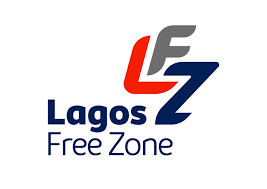

The Lagos Free Zone (LFZ) has become a ray of hope for Nigeria’s business environment. Both the Commonwealth Enterprise and Investment Council (CWEIC) and the Nigeria Economic Summit Group (NESG) have recognized the LFZ’s considerable potential to boost the country’s GDP if fully utilized. This paper examines the main features of the LFZ and how it can propel Nigeria’s economy forward.
What is the Lagos Free Zone (LFZ)? The LFZ is a designated economic zone located in Ibeju-Lekki, Lagos State. It offers businesses a wealth of benefits that streamline operations, reduce costs associated with starting and running a business, such as import duties, licensing fees, and warehouse rentals. The LFZ’s one-stop shop approach eliminates the need for businesses to navigate complex bureaucratic procedures across different government agencies. This saves businesses valuable time and resources that can be better invested in core operations and growth strategies. Additionally, the zone provides access to pre-built facilities with essential utilities like power and water, reducing the upfront investment required for businesses to establish
by themselves. In addition, the LFZ provides affordable office and warehouse space at competitive rental rates, which attracts companies of all kinds and fosters a business-friendly environment. Among these advantages are:
Simplified Trade: By offering “plug-and-play” solutions and removing typical bureaucratic roadblocks, the LFZ simplifies trade procedures. Companies can get around convoluted rules, go through a single approval procedure, and skip the customs line. Businesses benefit from this streamlined approach by saving time and money, which enables them to concentrate on their core competencies and launch products or services more quickly.
Improved Infrastructure: Companies operating in the zone benefit from a steady supply of electricity, strong security, and an effective logistical infrastructure. Sturdy electricity guarantees uninterrupted operations, and strong security creates a secure and effective work environment. The smooth flow of materials and goods is made possible by the effective logistics infrastructure, which reduces delays and interruptions.
Investment Incentives: By lowering tariffs, offering tax breaks, and offering other incentives, the LFZ draws in both domestic and foreign investment. Due to these incentives, companies find it more appealing to locate in the zone, which promotes economic activity and advances the Nigerian economy as a whole.
How Can Economic Growth Be Promoted by the LFZ?
Nigeria’s economic growth can benefit from the LFZ in a number of ways. First, it can encourage international businesses to establish operations in Nigeria, providing much-needed funding, know-how, and technological advancements. The Nigerian economy can benefit from this inflow of foreign direct investment (FDI) by growing new industries, adding jobs, and raising overall productivity. Additionally, Nigerian exports may be more competitive on the international market thanks to the zone’s effective infrastructure and simplified trade procedures. This may result in higher foreign exchange profits and a more varied export market for Nigeria. Additionally, the LFZ’s foreign company presence can promote best practices adoption and knowledge transfer across a range of industries. This might cause a cascade.

effect, enhancing Nigeria’s general business climate and raising local companies’ global competitiveness. Lastly, the LFZ’s growing business activity will create job opportunities that will raise household incomes and support the expansion of the domestic market. This might start a positive feed Tback loop that propels Nigeria’s economy to continue expanding and developing.
NESG’s optimistic prognosis
The fact that the NESG has endorsed the LFZ shows how much it believes the zone can contribute significantly to Nigeria’s economic growth. The NESG is a well-respected body in Nigeria, and their favorable evaluation of the LFZ is very important. This endorsement may reassure prospective investors further and persuade them to think carefully about establishing operations within the zone. The NESG’s confidence is probably a result of their comprehension of the different elements that can lead to economic growth and their acknowledgment of the thorough way in which the LFZ takes care of these elements.
In summary
The Lagos Free Zone offers companies of all sizes an enticing value proposition. The world-class infrastructure, streamlined customs procedures, and one-stop shop for regulatory approvals provided by the LFZ considerably cut down on the time and expense of conducting business in Nigeria. Investment, innovation, and the creation of jobs are all encouraged by this alluring business climate, and these are the fundamental components of economic expansion. Nigeria’s competitiveness in the international market can be enhanced by the LFZ’s existence, which will draw foreign direct investment and help the country develop a more resilient and diversified economy.

Be the first to comment